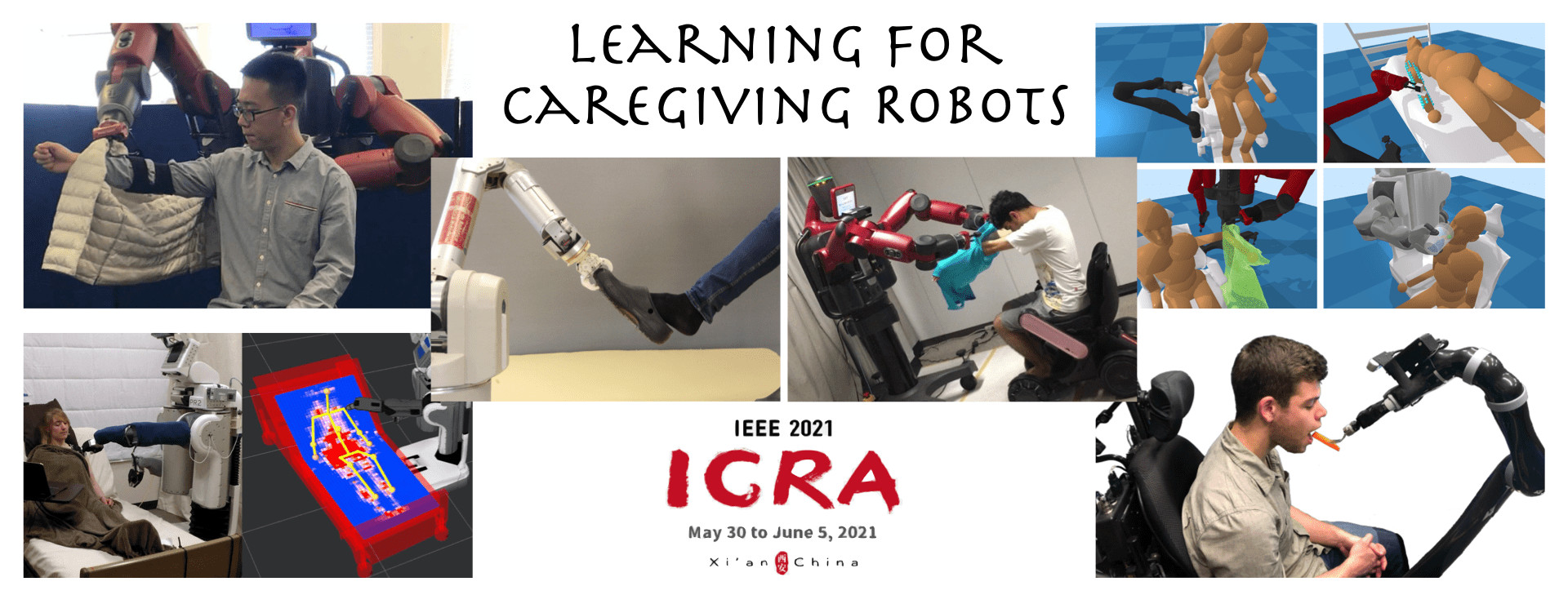
Robohub.org
Learning for Caregiving Robots workshop at IEEE ICRA 2021
by Zackory Erickson, Tapomayukh Bhattacharjee, Carme Torras, Yiannis Demiris, Charlie Kemp and Tomohiro Shibata

The Learning for Caregiving Robots workshop at IEEE ICRA 2021 discussed how learning can enable robotic systems towards achieving consistently efficient and safe human assistance across activities of daily living (ADLs). Here we bring you the recordings of the workshop, including talks from the nine invited speakers and two panel discussions.
Robotic caregivers could increase the independence of people with disabilities, improve quality of life, and help address growing societal needs, such as shortages of healthcare workers, aging populations that require care, and high healthcare costs. Using robotic technology to assist care-recipients in their daily lives may entail physically interacting with them, adapting to their preferences, and perceiving the environment for intelligent and safe assistance. These tasks can benefit from using data-driven machine learning techniques. Learning for caregiving in real homes depends on sensing and acting using real-world systems as well as metrics for success and generalization.
The primary objectives of the workshop were to explore the following questions:
- How can learning enable robotic systems to achieve efficient and safe assistance across (Instrumental) ADLs?
- What roles should (or should not) learning play for robotic caregiving?
- What are the opportunities and challenges of learning in robotic caregiving?
The workshop brought together renowned scientists and young researchers from the machine learning and assistive robotics communities to share and discuss solutions that can beneficially impact human society. Enjoy the playlist with all the recorded talks below!
tags: c-Research-Innovation















